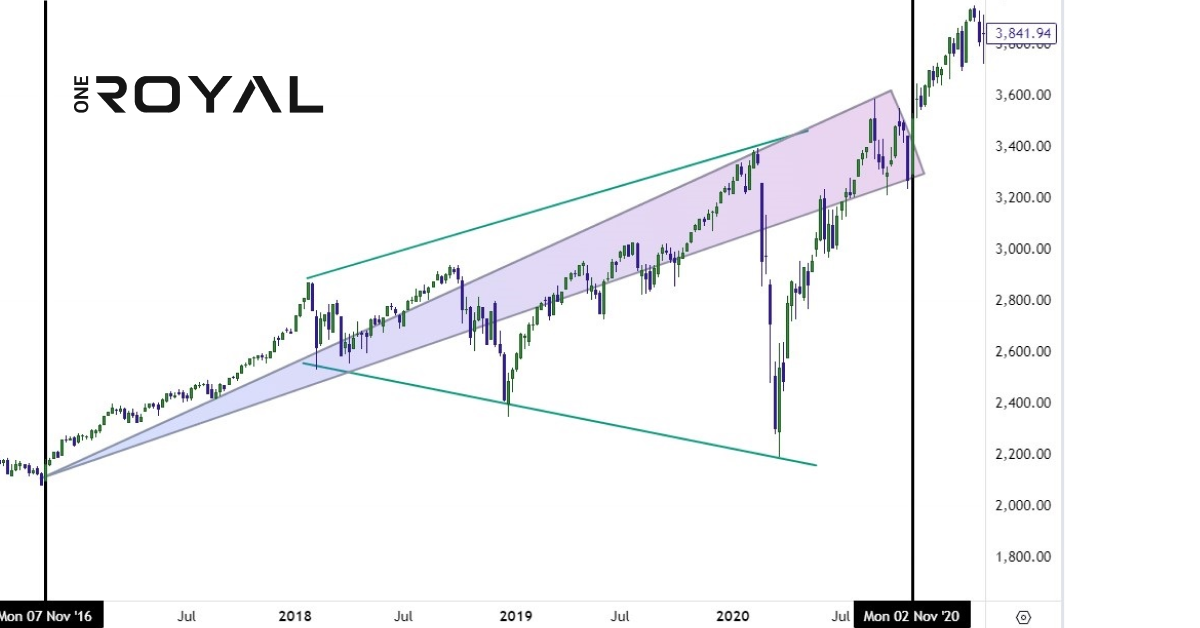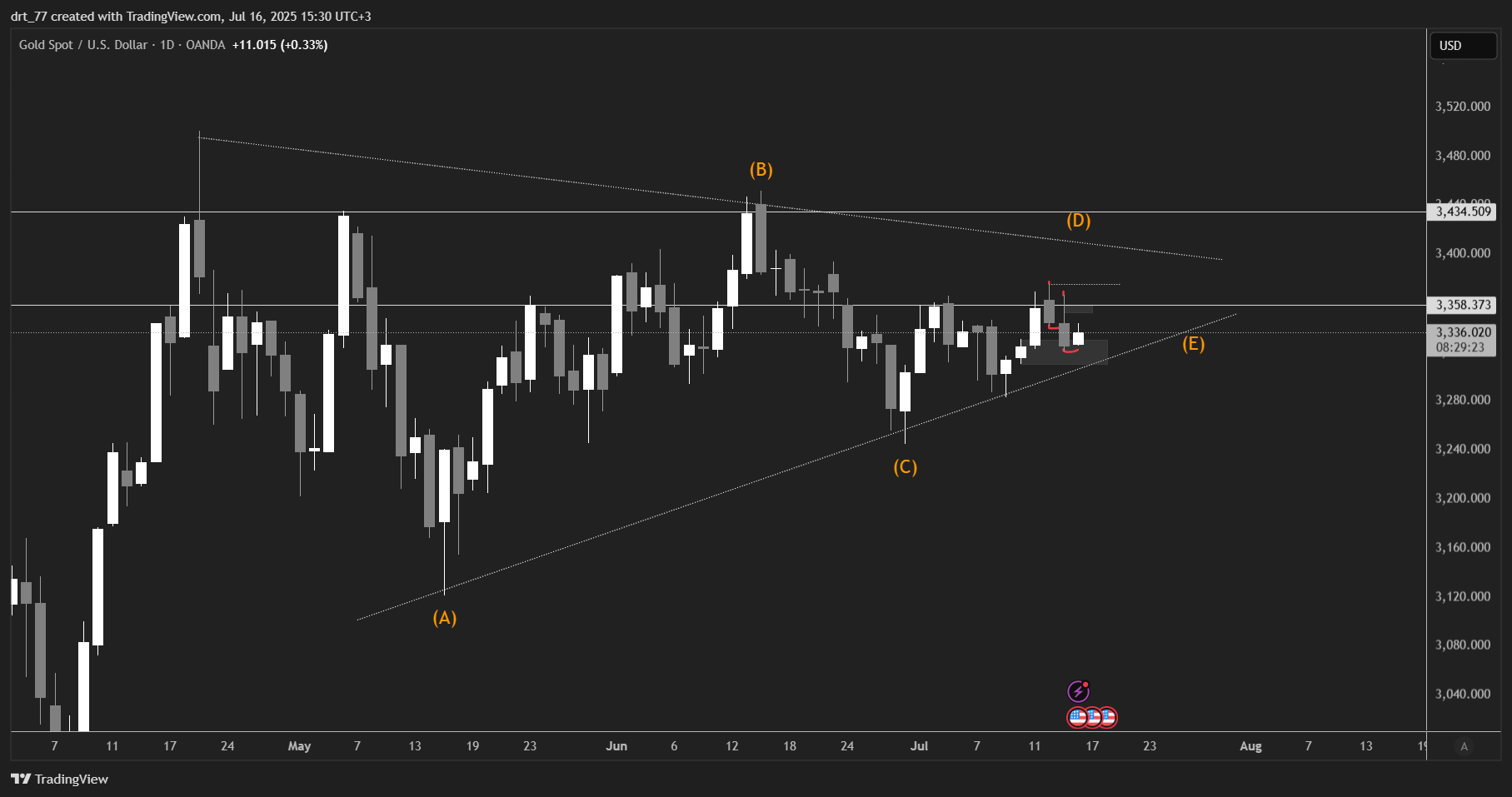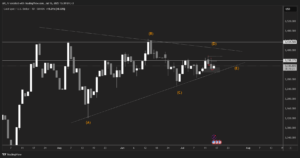Hello Traders,
Within the next 2 weeks we are approaching an once in a 4 years event, which is the US elections, taking place on November the 5th. This article will be a comprehensive guide into this pivotal moment in the US and the market itself, as we are going to outline the key characteristics of how market might react short term as well as longer term following the change in US presidency. However, as most are focused on the actual elections there are other important releases that are due within the same week of the elections that might carry a heavier impact than an election outcome itself, at least in the shorter term. Those include the US Nonfarm Payrolls due on November the 1st and the FOMC Interest Rate Decision on November the 7th.
Firstly, let’s look at both candidates differences in terms of their political ideologies and policy approaches.
Donald Trump
Ideology:
- Populism: Trump’s approach emphasizes a populist appeal, often positioning himself as a voice for the “common man” against the political elite.
- Nationalism: His policies often focus on America-first principles, prioritizing U.S. interests in trade, immigration, and foreign relations.
Policy Approaches:
- Economy: Advocates for tax cuts, deregulation, and a strong focus on job creation, particularly in traditional industries.
- Immigration: Supports stricter immigration policies, including building a border wall and limiting asylum-seeking.
- Healthcare: Favors repealing the Affordable Care Act and promoting a more market-driven healthcare system.
- Foreign Policy: Emphasizes unilateral action and skepticism towards international agreements, favoring bilateral deals.
- Climate Change: Generally downplays the urgency of climate change, rolling back environmental regulations.

Kamala Harris
Ideology:
- Progressivism: Harris aligns with progressive values, advocating for social justice, equity, and a more active role for government in addressing societal issues.
- Diversity and Inclusion: Her policies often reflect a commitment to diversity, equity, and inclusion across various sectors.
Policy Approaches:
- Economy: Supports increasing taxes on the wealthy to fund social programs, including expanding access to healthcare and education.
- Immigration: Advocates for a more humane immigration system, including pathways to citizenship and protections for undocumented immigrants.
- Healthcare: Promotes expanding access to healthcare, supporting the Affordable Care Act, and exploring options like Medicare for All.
- Foreign Policy: Supports multilateralism and engagement with international partners on issues like climate change and human rights.
- Climate Change: Advocates for aggressive action on climate change, including investments in renewable energy and green infrastructure.
Potential longer term impacts in financial markets
With a potential Trump’s re election, we might see increased market volatility with potential gains in traditional energy, defense, and selected tech stocks, driven by his pro-business policies and deregulation efforts. Also easing of inflation is another sector that he is looking to work on. Moreover, one stock could be impacted by Trump’s win, particularly his Trump Media & Technology Group (DJT) company. While simultaneously, it could cause an overall stock market instability due to his foreign policy approach and 10-20% tariffs on imports he is looking to apply and his anti China approach with much higher import tariffs, could create tensions and market volatility.
On the contrary, a Kamala Harris victory could lead to a more stable market environment, impacting renewable energy, infrastructure, and healthcare sectors, reflecting her focus on progressive policies and regulatory reforms. Harris’s victory could positively impact renewable energy stocks, infrastructure, and healthcare sectors.
A look at the SPX (SP500) Index during Trump’s presidency (2016 – 2020) – Weekly Timeframe

As seen the market initially traded higher, however entering 2018 into 2019, major volatility entered the market with the Index losing up to 20% of it’s value within a couple of weeks time. If we exclude the 2020 Covid crash, the overall view is that there was a turbulent stock market overall during Trump’s previous presidency, with tensions against China and his policy approach creating nervousness amongst investors and uncertainty in many cases.
As for Kamala, we do not have any prior presidential term, however her current stance and policy approach might sound more stable in terms of foreign policy overall.
While the above could impact the stock market longer term during the presidential term, in the shorter term volatility and turbulence may arise due to the uncertainty of the future policies and how the elected one could start the presidential term, it should be expected to have an impact into investor’s confidence overall. On the other hand, this presents with short term opportunities that might be capitalized by trading the sector that could be affected by the elected candidate.
Key Markets To Watch
As mentioned above, certain markets are likely to be more affected by the US presidential election results, such as:
- US indices: S&P 500, Dow jones, NASDAQ, Russell 2000
- Forex pairs: EURUSD, USDJPY & other USD related pairs
- Commodities: Gold, Silver, Oil & agricultural products
- Sectors: Energy, Healthcare, Technology & financial services (ETFs such as the XLE, XLF, XLK, XLV) *ETFs Trading through MT5: https://www.oneroyal.com/en/markets/etfs
While the above can have an impact in the markets, traders should also be focused on the economic releases that are due before and after the election. November 1st the US NFP is expected and unemployment data, which should show whether the economy is heading for a soft-landing or a potential hard landing and bigger recession ahead of us. As of last month’s data the jobs market has seen a recovery after a terrible July & August which created fears and big panic in the market. Currently the US Dollar has been recovering after the summer’s decline and any data moving forward should deem to be impactful.
On the other hand we will also expect to see a 0.25% rate cut by the Federal Reserve during November the 7th FOMC Meeting. As Fed’s chairman Jerome Powell stated many times, the US Federal Reserve is acting independently from any political party and their policy decisions are taken specifically by themselves, few days ago Trump appearing on Bloomberg said that he believes he would have a right as president to tell the Fed what he thought it should do about interest rates – but he would not order a move. Link to Reuters post: https://www.reuters.com/world/us/trump-says-president-should-weigh-not-order-fed-rate-decisions-2024-10-15/
Conclusions
As US elections may cause market volatility short term, traders this time around would be looking closely to the US jobs data prior to the election as well as the FOMC meeting and rate decision just after the election outcome. The markets will be looking whether the US economy is heading for a major recession or whether the data shows that the soft landing case is taking place with the slight weakness in the jobs market remaining under control as inflation appears to be colling down as well. During this November traders should be prepared and monitor all the above economic releases in combination with the elections and have a strategy in place in which can help in mitigating big risks while it might also be a need of taking a day by day approach as these events are taking place within separate days and one can counteract with the other, resulting in many ups and down during the first 7 days of the month.
More information regarding the Nonfarm payrolls, elections and FOMC rate decision will be posted in our November’s monthly outlook and weekly outlook as we approach the new month ahead.
If you are new here and you do not already have a trading account you can sign up at: https://www.oneroyal.com/en/
Risk Disclaimer: The information provided on this page, including market analysis, forecasts, and opinions, is for informational purposes only and does not constitute investment advice or a recommendation to buy or sell any financial instruments. Investing in financial instruments involves significant risk, including the potential loss of the principal amount invested. Leveraged products, such as CFDs and forex, carry a high level of risk and may not be suitable for all investors. Past performance is not indicative of future results. You should conduct your own research and consult with a qualified financial advisor before making any investment decisions. The firm does not guarantee the accuracy or completeness of the information provided and shall not be liable for any losses or damages arising from reliance on this content. By using this page, you acknowledge and accept these risks.





